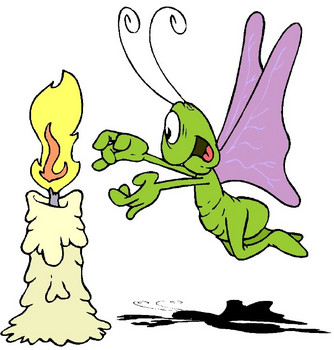Post by Cepha on Aug 18, 2008 18:05:32 GMT -5
www.tbm.org/was_peter_the_first_pope.htm
Was Peter the first Pope?
Today’s Question: Was Peter the first Pope?
Bible Answer: This question undoubtedly is the most important one to answer relative to the claims of the Catholic Church. The reason is simple: the whole doctrine and practice of the Catholic Church rests in the belief that the Pope speaks for Christ, so do disobey him is to disobey Christ. If on the other hand, Peter was not the first Pope then Christians could make the legitimate claim that the Pope has usurped the authority of Christ and has claimed more authority than warranted.
There are two points the Catholic Church has to prove: first, that Peter was made Pope and second that his office was intended to continue throughout church history.
Of course to simply prove Peter was the leader of the early Christians does not necessarily imply that there would be a leader for each successive age with Peter’s authority. However, one could assume that if Jesus made Peter the Pope—the head of all Christians—then He might have intended to continue the role throughout church history. It is my goal to show that Peter was not made Pope, and thus by proving this fact, then the other claim that the office should continue fails. After all, if Peter was not the Pope, then there is no legitimate office of the papacy.
Upon this Rock
So what is the primary proof that the Catholic Church points to demonstrate that Peter was made Pope? They use Jesus’ statement in Matthew 16:18-19, “And I tell you that you are Peter, and on this rock I will build my church, and the gates of Hades will not overcome it. I will give you the keys of the kingdom of heaven; whatever you bind on earth will be bound in heaven, and whatever you loose on earth will be loosed in heaven.” The argument made by the Catholic Church is this: Jesus gave Peter the keys of the kingdom of heaven, so he alone had the authority to bind and loose.
If Jesus had clearly given Peter supreme authority over all the apostles, then the other apostles would have known it, however, at the "Last Supper" a dispute arose among them as to which of them was considered to be greatest (Luke 22:24). They clearly did not interpret Jesus' words to mean that Peter was the "greatest" among them or else they would not have argued about it. Another good point we find in this passage is Jesus' response. He did not resolve their dispute by reminding them that Peter was the supreme apostle, rather, He encouraged them all to be servants. The Catholic Church never-the-less construe Peter's keys to mean that he alone was the head of the Church.
However, another problem with their argument is this: Jesus gave not only Peter the power to bind and loose, He gave this power to all His disciples. Look carefully two chapters later. Jesus said the same thing, “I tell you the truth, whatever you bind on earth will be bound in heaven, and whatever you loose on earth will be loosed in heaven” (Matt 18:18). Who was Jesus speaking to when He made this statement? Matthew 18:1 reveals He was speaking to all His disciples: At that time the disciples came to Jesus and asked, “Who is the greatest in the kingdom of heaven?” From this question Jesus gave a lengthy explanation of the role of leaders and there He repeated what He said to Peter earlier that they can bind and loose, thus this proves that all the disciples had the same power that was given to Peter.
In response to this the Catholic Church argues that the bishops and cardinals represent the other disciples who have the power of binding and loosing, so their argument is that bishops and cardinals have “similar” powers of the Pope, for they point to the fact that the Pope is elected by the cardinals and so they give the Pope its powers through election, and so in that sense they have powers to bind and loose. However, I would argue Jesus did not give the disciples “similar” powers, but He gave the disciples “equal” powers. Neither of the apostles was to use their authority over the rest of the apostles. In Catholic practice the Pope uses his authority over all the cardinals and bishops.
This argument I am presenting is not new, nor does it originate with Protestants. The Eastern Orthodox Church split from the Western Roman Catholic Church over this same issue. According to the Orthodox Church, the major bishops in their provinces have always shared power together, until the Bishop of Rome declared himself the Vicar of Christ and demanded submission from the other Bishops. The four leading Bishops broke away from the Roman Bishop over this issue. So you can see this claim by the Catholic Church is divisive.
Personally, I have no problem with the Pope claiming headship over only the branch of Christianity he serves, but he claims universal headship of all of Christianity. And more than that, he claims sole mouthpiece to speak infallibly in matters of faith and practice. It is these claims we cannot accept, and there is nothing in Matthew chapters 16 and 18 that gives the Pope the right to make these claims.
Was Peter the first Pope?
Today’s Question: Was Peter the first Pope?
Bible Answer: This question undoubtedly is the most important one to answer relative to the claims of the Catholic Church. The reason is simple: the whole doctrine and practice of the Catholic Church rests in the belief that the Pope speaks for Christ, so do disobey him is to disobey Christ. If on the other hand, Peter was not the first Pope then Christians could make the legitimate claim that the Pope has usurped the authority of Christ and has claimed more authority than warranted.
There are two points the Catholic Church has to prove: first, that Peter was made Pope and second that his office was intended to continue throughout church history.
Of course to simply prove Peter was the leader of the early Christians does not necessarily imply that there would be a leader for each successive age with Peter’s authority. However, one could assume that if Jesus made Peter the Pope—the head of all Christians—then He might have intended to continue the role throughout church history. It is my goal to show that Peter was not made Pope, and thus by proving this fact, then the other claim that the office should continue fails. After all, if Peter was not the Pope, then there is no legitimate office of the papacy.
Upon this Rock
So what is the primary proof that the Catholic Church points to demonstrate that Peter was made Pope? They use Jesus’ statement in Matthew 16:18-19, “And I tell you that you are Peter, and on this rock I will build my church, and the gates of Hades will not overcome it. I will give you the keys of the kingdom of heaven; whatever you bind on earth will be bound in heaven, and whatever you loose on earth will be loosed in heaven.” The argument made by the Catholic Church is this: Jesus gave Peter the keys of the kingdom of heaven, so he alone had the authority to bind and loose.
If Jesus had clearly given Peter supreme authority over all the apostles, then the other apostles would have known it, however, at the "Last Supper" a dispute arose among them as to which of them was considered to be greatest (Luke 22:24). They clearly did not interpret Jesus' words to mean that Peter was the "greatest" among them or else they would not have argued about it. Another good point we find in this passage is Jesus' response. He did not resolve their dispute by reminding them that Peter was the supreme apostle, rather, He encouraged them all to be servants. The Catholic Church never-the-less construe Peter's keys to mean that he alone was the head of the Church.
However, another problem with their argument is this: Jesus gave not only Peter the power to bind and loose, He gave this power to all His disciples. Look carefully two chapters later. Jesus said the same thing, “I tell you the truth, whatever you bind on earth will be bound in heaven, and whatever you loose on earth will be loosed in heaven” (Matt 18:18). Who was Jesus speaking to when He made this statement? Matthew 18:1 reveals He was speaking to all His disciples: At that time the disciples came to Jesus and asked, “Who is the greatest in the kingdom of heaven?” From this question Jesus gave a lengthy explanation of the role of leaders and there He repeated what He said to Peter earlier that they can bind and loose, thus this proves that all the disciples had the same power that was given to Peter.
In response to this the Catholic Church argues that the bishops and cardinals represent the other disciples who have the power of binding and loosing, so their argument is that bishops and cardinals have “similar” powers of the Pope, for they point to the fact that the Pope is elected by the cardinals and so they give the Pope its powers through election, and so in that sense they have powers to bind and loose. However, I would argue Jesus did not give the disciples “similar” powers, but He gave the disciples “equal” powers. Neither of the apostles was to use their authority over the rest of the apostles. In Catholic practice the Pope uses his authority over all the cardinals and bishops.
This argument I am presenting is not new, nor does it originate with Protestants. The Eastern Orthodox Church split from the Western Roman Catholic Church over this same issue. According to the Orthodox Church, the major bishops in their provinces have always shared power together, until the Bishop of Rome declared himself the Vicar of Christ and demanded submission from the other Bishops. The four leading Bishops broke away from the Roman Bishop over this issue. So you can see this claim by the Catholic Church is divisive.
Personally, I have no problem with the Pope claiming headship over only the branch of Christianity he serves, but he claims universal headship of all of Christianity. And more than that, he claims sole mouthpiece to speak infallibly in matters of faith and practice. It is these claims we cannot accept, and there is nothing in Matthew chapters 16 and 18 that gives the Pope the right to make these claims.







